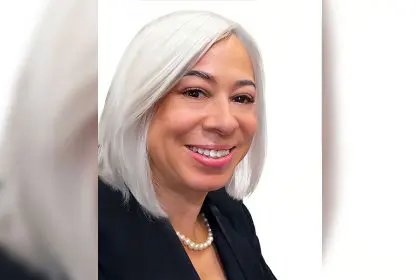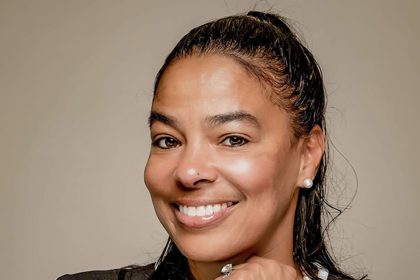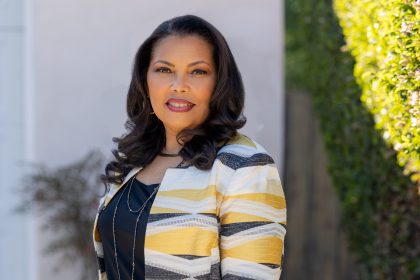In the heart of Atlanta’s burgeoning entrepreneurial landscape, Shawn M. Cumberbatch-Graham emerges as a transformative force reshaping the future of Black business ownership. As Executive Vice President and Chief Administrative Officer at the Russell Innovation Center for Entrepreneurs (RICE), she brings three decades of corporate leadership experience to the nation’s largest ecosystem dedicated to growing Black-owned businesses. Her journey from New York City CPA to becoming one of Atlanta Business League’s 100 Women of Influence mirrors the very transformation she now champions at RICE, where under her stewardship, stakeholder businesses contributed an unprecedented $557 million in new economic value to Metro Atlanta in 2024 alone.
Through her pioneering approach of “Readiness + Uncommon Access = Growth,” Cumberbatch-Graham has revolutionized how entrepreneurial support organizations measure and deliver impact. The development of RICE’s proprietary Readiness Indicator exemplifies her innovative leadership style, combining traditional metrics with transformational outcomes to create sustainable pathways for Black business success. Her vision extends beyond conventional nonprofit management, embracing artificial intelligence and advanced manufacturing through initiatives like the GA AIM Project 3, while maintaining the human connections that drive authentic community impact.
Every Nonprofit Leader possesses unique abilities to transform communities and mobilize resources for change. What are your distinct leadership strengths, and how do they manifest in your organization’s impact? How has your approach to community service evolved to address changing societal needs?
At the Russell Innovation Center for Entrepreneurs (RICE), our leadership is grounded in service, vision, and an unshakable belief in the potential of Black entrepreneurs. My leadership strength lies in my ability to forge deep, authentic connections, whether with entrepreneurs, partners, or stakeholders and turn those relationships into tangible impact. I have always believed that leadership is about seeing beyond what it is and reimagining what could be. Through our work at RICE, we are not just supporting Black businesses; we are reshaping economic mobility and ensuring Black prosperity. As societal needs evolve, so has our approach. We’ve moved from traditional nonprofit programming to a dynamic ecosystem that fosters uncommon access, opportunity, and exposure for Black entrepreneurs at every stage of their journey.
What defining moment awakened your commitment to nonprofit leadership, and how did you cultivate the courage to tackle systemic challenges? How do you maintain your passion for service while facing complex social issues?
For me, the defining moment came when I recognized that the barriers Black entrepreneurs face isn’t rooted in a lack of talent or ambition but in a lack of access. Walking through the historic corridors of the Russell Center, standing where the legacy of Black business giants was built, I knew we had a responsibility to do more than offer resources, along with our CEO, our priority is to shift mindsets and systems. Tackling systemic challenges requires resolve, the courage to have uncomfortable conversations, and the persistence to drive change. My passion for service is fueled by the wins, seeing an entrepreneur secure their first major contract, or watching a business scale. These moments remind me why this work is necessary now more than ever.
Share a pivotal organizational challenge that tested your leadership resilience. How did you transform that obstacle into an opportunity for greater community impact? What lessons about institutional sustainability emerged from this experience?
Leading a nonprofit focused on economic empowerment, one of our biggest challenges was proving our model’s long-term viability to funders and partners who weren’t accustomed to investing in Black-owned businesses at scale. There was skepticism about whether the impact could be measured beyond traditional metrics. Rather than allow doubt to stall our momentum, we doubled down on storytelling, elevating the voices of our entrepreneurs, capturing their journeys, and showing measurable economic growth. The lesson here is that sustainability isn’t just about financial resources; it’s about building a compelling case for why your work is indispensable. Today, RICE is a national leader in entrepreneurial support, and our ecosystem is expanding because we’ve proven that investing in Black businesses is not charity, it’s smart economics.
How do you measure impact beyond traditional metrics? What innovative approaches have you developed to demonstrate your organization’s value while staying true to your mission?
While metrics like job creation, revenue growth, and funding secured are critical, we also measure impact by transformation. We track the number of businesses that move from ideation to revenue generation, the entrepreneurs who go from dreamers to drivers. However, one of our most innovative approaches is our proprietary RICE Readiness Indicator. This readiness tool allows us to pinpoint specific knowledge or capability gaps that may hinder scalability. It operates effectively when business owners are honest, flexible, committed to growth, and accountable. Entrepreneurs must demonstrate sufficient readiness in all indicators within one stage before progressing to the next. This ensures holistic development, focusing not just on business acumen but also on leadership, mental resilience, and community engagement. The RICE Readiness Score has become a crucial metric for measuring entrepreneurial growth and ensuring long-term success.
In 2024 alone, RICE Stakeholder businesses contributed an additional $557 million of new economic value added to Metro Atlanta’s economy, creating, and sustaining 4,125 jobs. These results are validated by an economic impact assessment conducted by the Atlanta Regional Commission. RICE Stakeholder businesses have grown at a rate 6.6 times that of their peers. Through programs like Big IDEAS, our Retail Readiness Academy, and Supply Chain Accelerator, all measured by our proprietary Readiness Score, over 1,100 readiness milestones have been reached, ensuring entrepreneurs are equipped to grow and scale sustainably.
Our framework is simple but transformative: Readiness + Uncommon Access = Growth. At RICE, “Uncommon Access” means providing our entrepreneurs with opportunities that defy the status quo, be it through our game-changing partnerships, funding pathways, or the expertise they need to grow.
How do you maintain a balance between securing funding and maintaining program integrity? What wisdom would you share with other nonprofit leaders about building sustainable organizations while staying mission-focused?
Financial sustainability in the nonprofit sector is a delicate balance between securing funding and maintaining the integrity of the mission. We don’t chase dollars; we attract partners who believe in the transformative power of Black entrepreneurship. The wisdom I would share is this: Never compromise your mission for short-term gains. Build relationships, prove your impact, and operate with transparency. Long-term sustainability comes from trust; trust with funders, entrepreneurs, and the communities you serve.
How do you approach wealth building and financial sustainability for your organization? What financial lessons about nonprofit management would you share with emerging leaders?
Sustainability is about diversification, relying on grants alone is not a viable long-term strategy. But more than that, we teach our entrepreneurs financial acumen, ensuring that their success fuels our ecosystem. The lesson here is to think like a business while serving as a nonprofit, operating with a financial strategy that ensures longevity and growth.
Describe your approach to building and sustaining relationships with the communities you serve. How do you ensure your organization remains accountable to and guided by community voices?
We don’t serve the community; we are the community. Every initiative, every program, and every decision are built with the input of the entrepreneurs we support. We ensure accountability through direct engagement, listening sessions through our CEO and CXO Townhalls, advisory boards through our industry sectors, and open-door policies with our Program Team where entrepreneurs help shape our offerings. True community engagement means leading with humility, learning from those you serve, and being willing to adapt based on their needs.
Share your philosophy on addressing both immediate community needs and long-term systemic change. How do you balance crisis response with strategic planning?
At RICE, we recognize that real change happens at the intersection of immediate action and long-term strategy. Addressing urgent community needs, whether through emergency funding, mentorship, or resource access is critical, but we are equally committed to systemic transformation. We balance crisis response with strategic planning by ensuring our interventions create sustainable pathways for success. Our work doesn’t stop at meeting immediate needs; we focus on equipping entrepreneurs with the skills, networks, and capital necessary to drive change long-term.
What strategies have you employed to create lasting institutional change while nurturing the next generation of nonprofit leaders? How do you approach succession planning and leadership development?
Building lasting institutional change requires investing in people. At RICE, we foster a culture of mentorship, ensuring that the next generation of nonprofit leaders are equipped with the vision, skills, and resilience to carry this mission forward. Our leadership development initiatives include immersive training and real-time leadership opportunities within our ecosystem. We cultivate leadership at every level, ensuring that the future of RICE is strong, adaptable, and mission driven.
Tell us about your approach to board development and governance. How do you create leadership spaces that truly reflect and serve your community?
Our board development strategy is rooted in inclusivity, expertise, and alignment with our mission. We intentionally recruit leaders who reflect the communities we serve in some capacity. These are powerhouse individuals with lived experience, strong business acumen, and a commitment to Black entrepreneurship. Governance at RICE is about active engagement, advocacy, and strategic foresight. We ensure that our leadership spaces remain dynamic, responsive, and impactful, driving an agenda that empowers Black businesses and elevates economic mobility.
What role has innovation played in expanding your organization’s impact? How do you incorporate new technologies and methodologies while maintaining human connections?
Innovation is at the core of our growth. From leveraging AI to create digital business solutions for our entrepreneurs to utilizing data analytics to track economic impact, we embrace technology as a tool to drive equity. Through our GA AIM Project 3 initiative, we are leveraging advanced manufacturing and artificial intelligence to create more opportunities for Black entrepreneurs. This initiative, in collaboration with Georgia Tech, University of Georgia, Technologists of Color, & KITT Labs, focuses on preparing business owners to integrate smart manufacturing and AI-driven solutions into their operations, ensuring they remain competitive in an evolving market. However, we never lose sight of the human connection. Technology should enhance relationships, not replace them. The future of nonprofit leadership will require a blend of innovation and authenticity.
Looking forward, what emerging opportunities do you see for nonprofits to make unprecedented impact? What legacy do you hope to leave in the nonprofit sector?
The next decade presents unprecedented opportunities for nonprofits to leverage corporate partnerships, impact investing, and new economic models to drive sustainable change. My hope is that RICE’s legacy is one of radical empowerment and that we didn’t just support Black businesses, but that we transformed the way the world sees, funds, and champions them. The legacy we aim to leave is clear: Equity is not optional, Black wealth is a necessity, and the future of entrepreneurship is diverse, inclusive, and unstoppable.

















